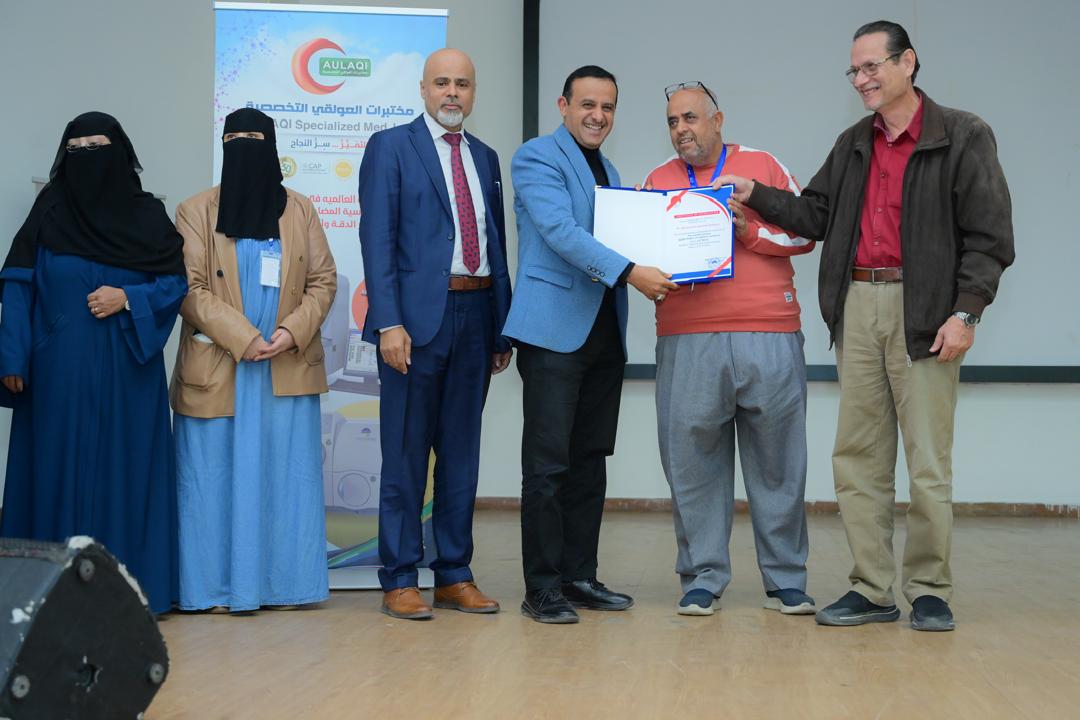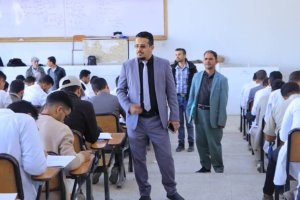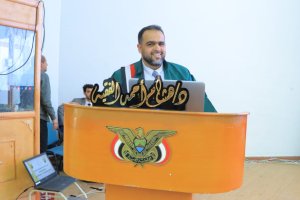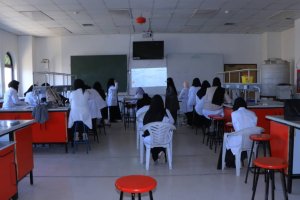Global Antimicrobial Awareness Week and the Danger of Resistance

In celebration of Global Antimicrobial Awareness Week, a distinguished scientific seminar was held under the patronage of the Dean of the Faculty of Medicine and Health Sciences at Sana’a University, Dr. Khaled Al-Khamesy, and with the participation of the Laboratory Medicine Syndicate, led by Dr. Salah Al-Qabati. The seminar witnessed the attendance of several deans of faculties directors of diagnostic centers, as well as graduate students.
The dean opened the event with a speech welcoming the attendees, emphasizing the importance of this occasion in raising awareness about antimicrobial agents and their vital role in public health.
He noted that antimicrobial resistance poses a significant challenge facing healthcare systems globally, warning of the dangers of the imprudent use of these medications, which could lead to the spread of untreatable infections, threatening the lives of millions.
The program included presentations by several academic staff and experts, who delivered informative and educational lectures. They addressed the topic from both scientific and practical perspectives, discussing the importance of the correct use of antimicrobials and the community’s adherence to medical guidelines.
The role of the Medical Diagnostics Syndicate in combating antibiotic resistance was also discussed, with Dr. Salah Al-Qabati emphasizing the importance of collaboration between educational and health institutions in raising awareness and educating the public on the proper use of these medications.
The speakers encouraged students to present their ideas and initiatives to enhance health awareness in the community, stressing that the responsibility of awareness extends beyond doctors to include all members of society.
At the conclusion of the event, the dean expressed his gratitude to everyone who contributed to organizing this event, affirming the importance of continuing efforts in raising awareness and educating the public about the correct use of antimicrobials.
The Faculty hopes that this event will contribute to achieving positive change that enhances community health and reduces the risks of antibiotic resistance.
Before closing the event, attendees participated in issuing important recommendations to reduce or prevent antimicrobial resistance, which will be submitted to decision-makers across all sectors related to human, animal, and environmental health and their integration.













